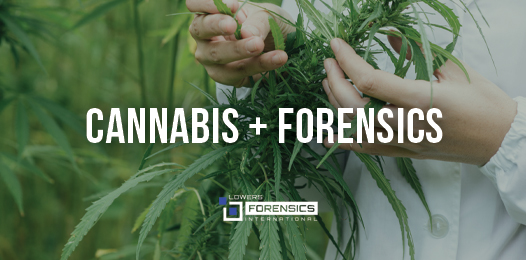

The 2018 election significantly changed the trajectory of cannabis laws in the US. Medical marijuana is now legal in 34 states, recreational use is legal in 10 states and the District of Columbia, and many other states have decriminalized possession of marijuana.
As medical marijuana becomes more mainstream, it is increasingly used to treat cancer, mental disorders, and chronic pain. And overall, one in seven Americans had used marijuana in 2017, with smoking being the most common manner of consumption, according to a report published in the Annals of Internal Medicine. Other popular cannabis products include buds, edibles, oils, and tinctures.
The number of Americans directly employed in the industry has soared to more than 211,000. When ancillary jobs (e.g., lawyers, insurance agents, accountants) and induced jobs (e.g., local jobs supported by the spending of cannabis industry paychecks) are added, the number jumps to 296,000 full-time jobs.
In 2018 alone, the marijuana industry added 64,389 jobs, a 44 percent gain. By comparison, there are currently about 52,000 US coal mining jobs, 131,430 chefs, 65,760 aerospace engineers, and 69,000 American brewery workers.
Insurance carriers are responding to these opportunities by offering new lines of coverage. However, given the unique liabilities that the industry presents, they are also recognizing that the need for qualified forensics support is stronger than ever.
The State of Cannabis Insurance
The Insurance Journal sees a “strong need” for insurance in the cannabis industry. One law firm that specializes in cannabis cases estimates that there are about 30 surplus line carriers and a few dedicated carriers serving the US cannabis market. “While it has become easier for companies to find coverage, the industry is still underserved,” said Ian Steward, a partner in the Wilson Elser firm.
New Lines, New Liabilities
Though many of the standard lines of insurance work for the marijuana industry (e.g., property liability, workers comp, business interruption), it also presents some unique challenges. For example:
- What are the limitations with respect to professional or product liability? Can a cannabis grower or a retail dispensary be held liable for the actions of a customer who is high on pot?
- Does there need to be additional coverage for medical professionals who prescribe medical marijuana since drug interactions with cannabis are not yet known?
- Is the company protected from consumer class action suits stemming from mislabeled or contaminated products, or due to violations of state laws?
The insurance industry is scrambling to develop new types of policies to address the varied needs of the cannabis sector. In 2018, California Insurance Commissioner Dave Jones approved the first Cannabis Business Owners Policy (CannaBOP) in California. Crafted by the American Association of Insurance Services, CannaBOP consists of property and liability coverage for dispensaries, processors, manufacturers, distributors, cannabis storage facilities, and other related businesses operating in the state. Nationwide, however, the majority of cannabis businesses have no choice but to absorb the cost when something goes awry, which can mean losing millions of dollars. No other legalized businesses or industries face that kind of financial risk.
Coverage needs include:
- General Liability
- Products/Completed Operations Liability
- Premises Liability
- Crop & Finished Product Insurance
- Property Insurance
- Transportation Insurance
- Commercial Crime/Theft
- Loss of Income
- Professional Liability
- Cyber Liability
- Employment Practices Liability
The Role of Financial Forensics
With so many unknowns in this budding industry, insurance providers will be well-served to have a team of financial forensics experts on hand to investigate the claims that will inevitably arise. Forensic accountants are uniquely positioned to quantify losses and present the strongest possible case on behalf of clients.
The causes and stakeholders involved in cannabis claims will differ from case to case, and forensic accountants are poised to investigate them from a variety of perspectives. They frequently work on behalf of companies to quantify damages stemming from lost revenue, tangible assets, or business reputation.
Forensic accountants also operate on behalf of plaintiffs in class action suits, where the main objective is to document a correlation between the incident and actual financial harm to the plaintiffs. This requires them to mine numerous data sources to find and connect the “financial breadcrumbs” needed to establish injury. They wade through volumes of data – from internal databases to consumer financial records to third-party databases — to uncover key, and often minute, details that will support their case.
Forensic accountants can help the cannabis insurance industry with the following types of issues:
- Insurance claims accounting
- Investigations
- Valuation of damages (lost revenue, assets)
- Fraud and corruption
- Business disputes
- Cyber loss
- Litigation support
- Expert witness testimony
In other scenarios, a cannabis-related business owner may hire a forensic specialist to investigate a bookkeeper suspected of embezzling funds. Or, they can be hired to uncover hidden assets in a divorce proceeding.
In all these roles, the forensic accountant will provide litigation support to the client, ranging from reports and documentation to expert witness testimony. Their goal with each case is to transform complex financial information into clear, fact-based evidence.
If you’d like help understanding how forensic accountants can support your work in the cannabis industry, please give us a call.